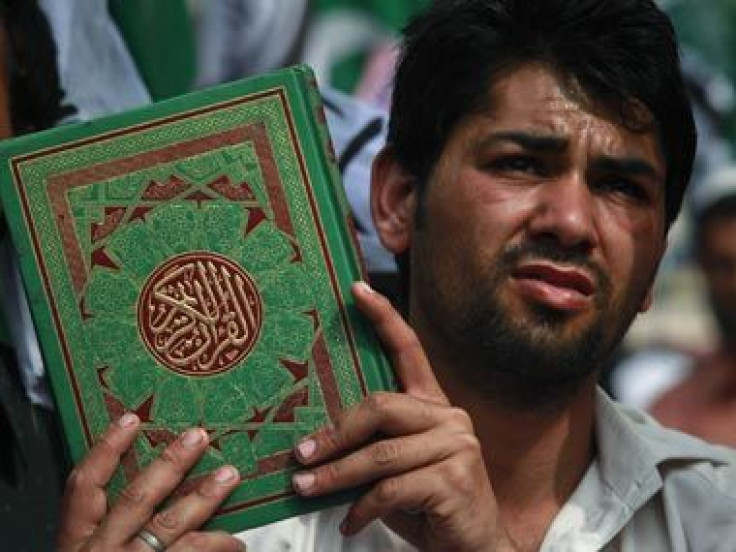Rural Pakistani Mob Defends God By Murdering 'Blasphemer'

News reports say the traveler in his 30s who was murdered by an angry mob on Friday in a tiny village in Pakistan’s southern Sindh province had sought a night’s sleep in the local mosque, as is customary for out-of-town strangers to do in this part of the world.
But according to locals in the town of Seeta, the visitor for some reason allegedly lit one or more of copies of the Quran on fire, a dangerous act in a country where blasphemy is not just illegal but can lead to murderous vigilante justice. In Pakistan, such desecrations -- whether committed or just rumored to be committed -- can lead to murder, often in front of authorities powerless to stop the tide of angry mobs stirred up by a smaller number of self-righteous rabble-rousers acting as judges and executioners in the name of God.
In the latest incident, the punishment was administered by about 30 vigilantes who were spurred on by hundreds of jeering locals. They dragged the man out of the local police station, where he had already been detained, took him to the center of the village, doused him with kerosene and lit him on fire.
“He offered Isha prayers (on Thursday) and spent the night here. When (worshippers) came to the mosque for Fajr prayers (on Friday morning), we found charred copies of the Holy Quran,” the village imam, or Muslim minister, told Reuters.
Nine suspected vigilantes were arrested shortly after the murder, and another 21 were detained later in the day during police raids, according to Pakistan’s Dawn news agency. By its account, the man was already beaten to death before his body was burned. Seven police officers are also in custody and accused of negligence. Police claim they were overwhelmed by the more than 1,000 people who surrounded the station.
Just hours before the mob-inspired murder, the man had been beaten and delivered to the police station after local mosques broadcast on their bullhorns what had allegedly transpired.
Dawn quoted village watchman Noor Hussain as saying the suspect spoke in Saraiki accent. Saraiki is a Punjabi language group and is also spoken among many Hindus in the region. Police said that in the brief time that they had the man in custody, he refused to give up his identity. In accordance with Islamic custom the man was buried quickly in an unmarked local grave after the medical examiner released his charred remains.
According to a report in Dawn, an average of 53 people a year have faced blasphemy charges between 1986, when the law went into effect, and 2010. Of these, 52 people were murdered by angry vigilantes before their cases could be handled by the courts. Human Rights Watch estimates 1,400 blasphemy cases have been brought before Pakistan’s courts and 15 people are on death row after having been found guilty of blasphemy, according to CNN.
In November, Pakistan’s high court dropped charges on Tuesday against Rimasha Masih, a 14-year-old Christian girl who was arrested on Aug. 17 on charges she desecrated a Quran in Merabad, a poor district outside Islamabad where some of the country’s Christian minority reside.
In his 15-page ruling, Chief Justice Iqbal Hameed Ur Rehman accused a local Muslim preacher (imam) of having an “ulterior motive” for leveling a “false implication” against the girl -- namely his effort to drum up support to expel the area’s Christian residents.
© Copyright IBTimes 2024. All rights reserved.












